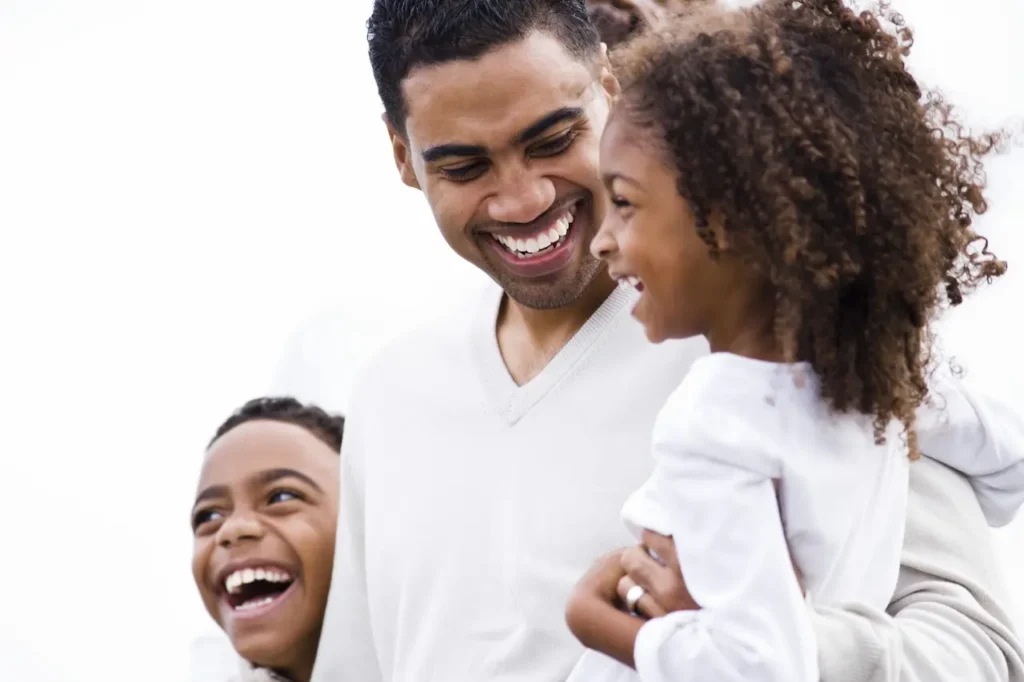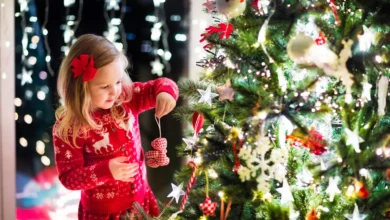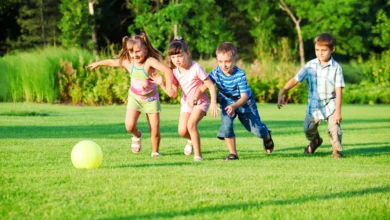Why Children Find Poo Jokes So Funny
The Science Behind Why Children Find Poo Jokes So Hilarious
Why Children Find Poo Jokes So Funny? As a parent, one of the most consistent sources of amusement (and sometimes frustration) in my household is the fascination my children have with anything to do with poo, bums, and toilets. At any given moment, the conversation could take a turn for the absurd, and without fail, someone will say something about a poo or a bum that sends them into fits of laughter. While it’s tempting to roll my eyes, I’ve come to realise that this obsession with toilet humour is not just some quirky phase, it’s an essential part of their development.
But why do children find ‘poo’ jokes so funny, and how should we, as parents, cope with all this talk about bodily functions? Is there a deeper developmental purpose behind these jokes, or are they just the random musings of a child’s overactive imagination?
Why Children Find Poo Jokes So Funny: Humour is Key to Child Development
The first thing to understand is that humour plays an important role in a child’s development. It’s not just about the laughs, it’s about how kids learn, process, and interact with the world around them. Humour is one of the key ways children explore and understand social boundaries. A few days ago, I asked my daughter why she and her friends laugh so much about poo jokes, and she responded with one simple answer: “Because it’s funny.”

That response may sound obvious, but it hints at something important. Humour in children is often about pushing boundaries, whether it’s a new word, a new action, or a new concept that they find strange or funny. In this case, it’s about the taboo or the socially awkward nature of bodily functions. When kids make jokes about poo or bum-related topics, they’re testing the waters of what’s acceptable to say out loud, and that gets a reaction from us adults. And let’s face it, it’s hard to resist laughing at their giggles.
You might also like: 6 Types of Baby Birthmarks
The Early Stages of Comedy: The Poo Phase
According to child development experts, this love of poo humour starts early, and it’s not just a random phase. Paige Davis, a psychologist at the University of Huddersfield, notes that infants start laughing and smiling from a very young age. This is the beginning of their sense of humour. But as they approach preschool age, their sense of comedy becomes more defined, and it’s often centred around bodily functions like poo, pee, and other private matters.
Justin Williams, a child psychiatrist at the University of Aberdeen, explains that between the ages of two and three, children experience a “learning explosion.” During this time, they become self-aware and start to understand concepts like pretence and that words can represent objects. This is when the fascination with toilet humour begins.
“The three-year-old running around the house saying ‘poo’ or pretending to go to the toilet is arguably appreciating the incongruity of being able to use the word liberally,” he writes. “They are also playing with the action of toileting, the social conventions around it, and the possible consequences of incontinence.” In other words, kids are not just saying the word “poo” for the sake of it they’re experimenting with language, social norms, and even the concept of shame.
Toilet Training and the Rise of Poo Jokes
Beyond simply being amusing, toilet humour also helps children navigate the challenging process of toilet training. The jokes they make about poo, wee, and toilet accidents are reflections of their understanding of social rules. As children start to learn how to use the toilet, they also become aware of the importance of cleanliness and privacy.
Justin Williams points out that jokes about bodily functions help children cope with the anxiety and uncertainty that often accompany toilet training. As any parent knows, potty training can be a stressful time. Children are learning a new skill while also dealing with the pressures of social norms. Making jokes about poo during this process allows them to laugh off the awkwardness and take some of the tension out of the situation.
“If you just think about what makes anybody laugh,” Justin explains, “it’s the things we’re a bit unsure about, particularly in a social context when we’re unsure about the social rules and about how to behave. We tend to make jokes about that.” Toilet humour, in this sense, serves as a coping mechanism for a new and sometimes uncomfortable social experience.

How to Respond to Poo Jokes
As parents, it can be tricky to know how to respond to a child’s endless stream of poo-related jokes. Sometimes, the jokes are so silly that they’re hard not to laugh at. Other times, they can start to feel a bit excessive, especially when the same joke gets repeated for the hundredth time. So, what’s the best approach?
According to Paige Davis, it’s okay to laugh and engage with the jokes, just don’t overdo it. Sharing in the fun can help children feel understood, but it’s important to guide them toward more mature forms of humour as well. “Kids are going to have to learn that some poo jokes are okay, but there are times and places for them,” she says. One way to help them expand their sense of humour is to encourage them to participate in other types of jokes that are more socially acceptable.
For younger children who are in the midst of toilet training, Justin Williams suggests that it’s perfectly fine to participate in the poo humour. Doing so can help reduce the shame and embarrassment that often accompany accidents. It also creates an opportunity for open communication between parent and child, strengthening the bond and fostering a sense of comfort when it comes to discussing bodily functions.
You might also like: Nurturing Dads Foster Respectful Kids
What Can You Do About It?
While the constant stream of toilet talk may drive parents a little crazy at times, it’s important to remember that it’s just a phase and one that usually doesn’t last forever. As children grow older, their sense of humour evolves, and their obsession with poo jokes typically wanes. However, as Justin Williams points out, a love of bodily function humour doesn’t completely disappear, it just becomes more nuanced.
“I don’t think it ever goes away, you really,” he says. Even as adults, we still find humour in awkward or embarrassing situations, and many of us continue to laugh at the things that make us uncomfortable or self-conscious.
So, while it might be tempting to roll your eyes the next time your child cracks a joke about poo, try to embrace it. After all, it’s an important part of their development, and who knows, one day, they might be telling you hilarious, sophisticated jokes that leave you in stitches for entirely different reasons.
Until then, I suppose I’ll just have to grin (and bear) the constant references to bums, wees, and poos.
What Happens When the Cognitive Level Has Passed?
As children grow, the cognitive processes that fuel their humour also evolve. Eventually, what once seemed endlessly funny like a game of peek-a-boo or even a poo joke loses its potency. The child has outgrown the mental stage where these jokes or games are amusing because they have developed a deeper cognitive understanding of the world around them. This shift marks an important milestone in their development.
The Evolution of Humor: From Peek-a-Boo to Poo Jokes
When a young child is playing peek-a-boo, the humour often stems from the element of surprise, which is tied to the concept of object permanence. Object permanence refers to the understanding that things continue to exist even when they cannot be seen or heard. Infants find peek-a-boo hilarious because it plays on their developing sense of separation. When they can’t see the person, they believe that person is gone. When the person reappears, it’s a thrilling, albeit temporary, “reunion,” making it both exciting and funny.
However, as the child’s cognitive abilities develop, this novelty fades. By the time children have fully grasped the concept of object permanence, they no longer find peek-a-boo entertaining. They understand that when something is out of sight, it doesn’t mean it has disappeared entirely. So, the magic of peek-a-boo evaporates, much in the same way that a simple poo joke loses its punch once the child is older and more aware of social norms and language use.
Social Tension and Humor: Why It Matters
Humour, especially in the early stages, is also closely tied to social tension. For infants, peek-a-boo isn’t just about surprise, it’s also about managing the social tension of separation from a caregiver. The thrill of the game is mixed with the temporary anxiety of being apart, and the laughter that follows reaffirms that the separation is not permanent. However, if a child experiences separation anxiety or feels uncomfortable with the gam, say if a stranger is involved or the environment is unfamiliar li, peek-a-boo is no longer funny. It becomes more distressing than amusing.
As children grow older, social tension becomes more complex. They start understanding the rules of humour and learn to push boundaries, often leading to the “poo phase.” It’s no longer just about laughing at the surprise of something being hidden, but rather the amusement in breaking social taboos, like talking about bodily functions in a public setting.



